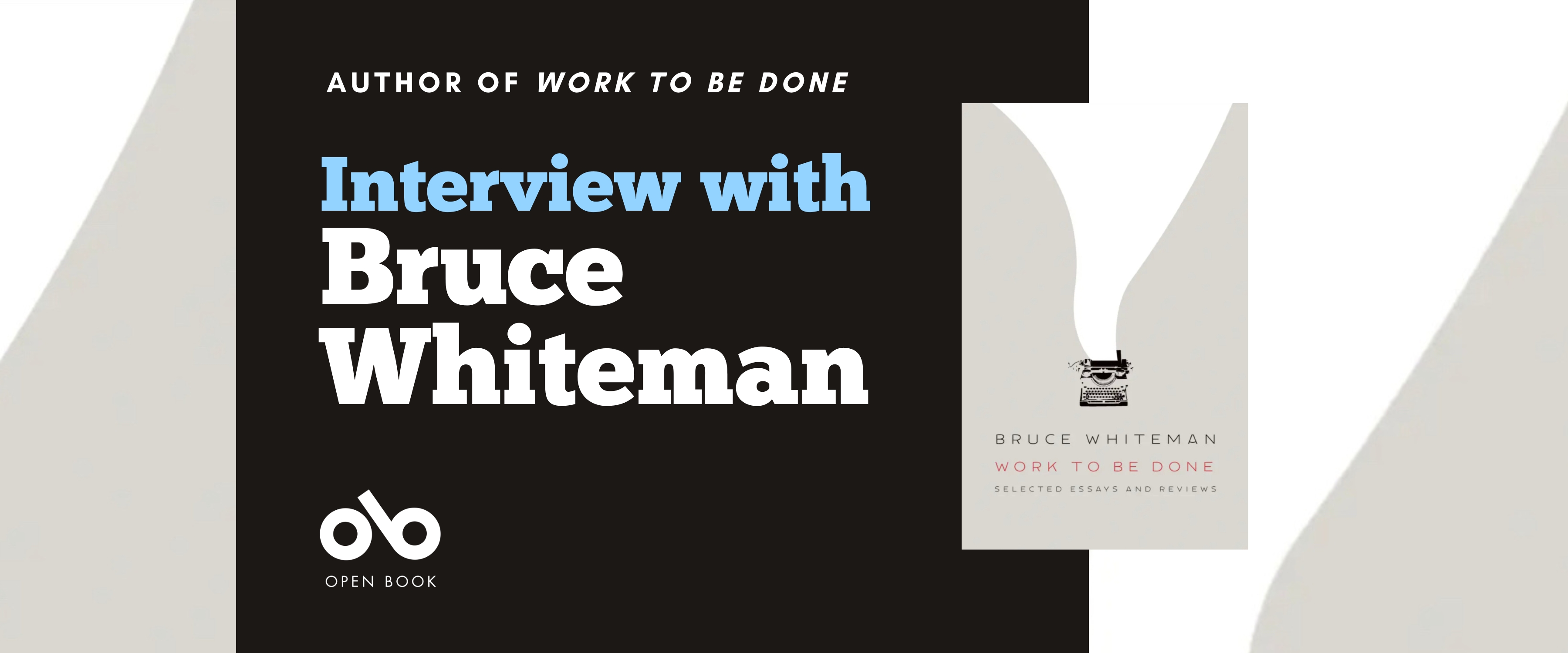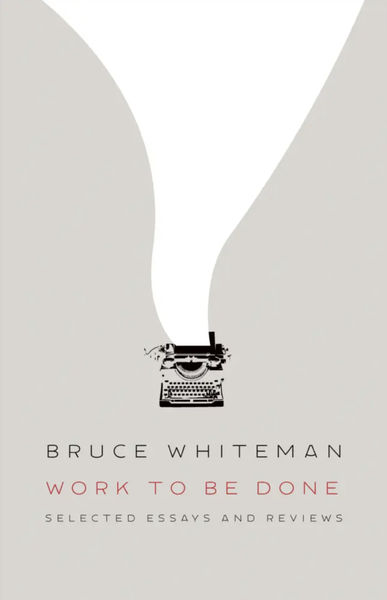The Collected Essays in Work to be Done Share Remarkable Insights Into Fifty-Years of Literary Criticism and Analysis
Bruce Whiteman is an accomplished poet, translator, and scholar who has shown a vast scope of knowledge over his literary career. His essays have been published far and wide, and have provided valuable insights into classical and contemporary literature, as well as musical and book history.
In the new edition of collected essays by the author, Work to be done (Biblioasis), the depth and range of Whiteman's critical acumen is on full display for the reader. Over thirty-four pieces, he examines artists like Sappho, Goethe, Samuel Beckett, P.K. Page, Leonard Cohen and Philip Larkin.
Whiteman's eclectic selection of essays is sure to delight lovers of literary criticism and artistic analysis, and today we're sharing this enlightening Writers as Readers series entry with the author, in which he discusses his work over some fifty years in letters.
The first book I remember reading on my own:
Chatterer the Red Squirrel, by Thornton W. Burgess. Burgess published many, many children’s books, but this one stands out in my memory as being the first one I recall reading solo.
The first adult book I read:
I guess it lies somewhere on the border between adult book and children’s book, but I’d say Wild Animals I Have Known, by Ernest Thompson Seton.
The book I have re-read many times:
James Joyce’s A Portrait of the Artist as a Young Man. It was on the Grade 12 curriculum when I was in high school, and I have gone back to it often. Any aspiring writer should read the novel early, if possible, to help bolster the idea that a writer’s life is something to aspire to.
A book I feel like I should have read, but haven't:
Oh God, so many! I’ll mention Apologia Pro Vita Sua by John Henry Newman, but if allowed, would also add Mary Shelley’s Frankenstein.
Your CanLit News
Subscribe to Open Book’s newsletter to get local book events, literary content, writing tips, and more in your inbox
The book I would give my seventeen-year-old self, if I could:
William Carlos Williams’ Pictures from Bruegel. I had it at nineteen but it’s almost never too early for a poet-to-be.
The best book I read in the past six months:
Emily Wilson’s translation of The Iliad. I reviewed it and had some quibbles to make about her English. But overall it’s a readable and convincing version of Homer’s war poem.
The book I plan on reading next:
Jessica J. Lee’s Dispersals: On Plants, Borders, and Belonging. I’m an amateur botanizer in the Victorian sense, and this book looks informative and poetic both.
My go-to recommendation when someone asks for something great to read:
May I equivocate and chose one novel and one book of poetry? Malcolm Lowry’s Under the Volcano remains one of the great works of fiction. And W.B. Yeats’s selected (or collected) poems remain for me an achievement in poetry I can only admire and aspire to from the base of the mountain.
__________________________________________________
Bruce Whiteman was a rare book specialist for over thirty years. He worked at McMaster and McGill Universities in Canada, and later ran the William Andrews Clark Memorial Library at UCLA. He is now a poet, translator, and reviewer. He teaches courses in the School of Continuing Studies at the University of Toronto, and for several years was the Poet in Residence at Scattergood Friends School, a Quaker boarding school in Iowa. The final book of his long poem, The Invisible World Is in Decline, was published in 2022.




